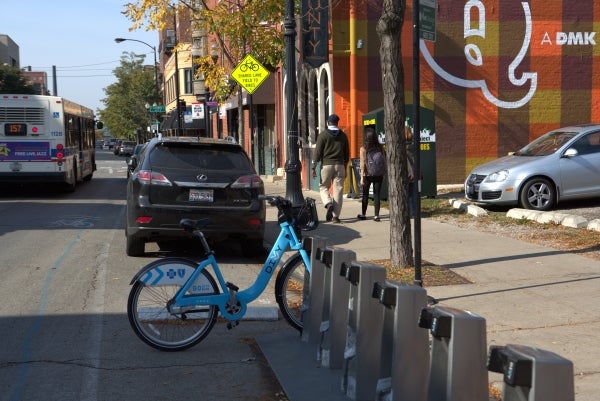Listen - Activate - Transform
Civic and community engagement is a hallmark strategic priority at UIC. This commitment is codified into our mission as Chicago’s only public, research university and is indeed evident throughout every college and unit across campus. Across many diverse disciplines, including health care, education, urban development, or arts and culture, to name just a few, we strive to work with communities and the organizations that serve them, not only to study them.
As many individuals across our university community have mobilized and re-organized research and service activities to provide COVID-19 pandemic response and relief to our local and regional efforts, we hope to seed and foster greater campus collaboration to address the needs of communities and neighborhoods that have faced disproportionate hardship and harm because of COVID-19.
The city of Chicago has looked to UIC as a partner in addressing racial disparities in health, technology, and service that have been laid bare by COVID-19. School of Public Health Dean Wayne Giles and Marcus Betts, Assistant Vice Chancellor for External Engagement, both serve on the Mayor Lightfoot’s Racial Equity Rapid Response Team and Dr. Amalia Pallares, Vice Chancellor for Diversity, Equity and Engagement, is a member of the Mayor’s Recovery Taskforce. Their work, on behalf of UIC, when coupled with existing COVID-19 response and recovery efforts happening across our campus, exemplify the role UIC plays in addressing and responding to COVID-19, all while keeping our rich history of community engagement at the forefront.
As COVID-19 continues its prevalence across our region, the need to coordinate university efforts are more important than ever. UIC’s multidisciplinary academic and research network, including that of our academic health enterprise of UI Health, are uniquely positioned to be astutely responsive to our community partners’ needs in ways that may directly address immediate concerns as well as set the stage for long-term partnerships.
With the support of the UIC School of Public Health, UIC -Partnerships for Antiracist Campus Transformation (UIC-PACT), was established. Led by Dr. Jeni Hebert-Beirne, Interim Associate Dean for Community Engagement at the School of Public Health; Dr. Jennifer Brier, Director of the Program in Gender and Women’s Studies; and Dr. Marc Atkins, Director of the Institute for Juvenile Research and the CCTS Community Engagement and Collaboration Program, Nancy Tartt, Associate Director for operations, Office of Community Engagement and Neighborhood Health Partnerships (OCEAN HP), and Gabriela Peña, CCTS Community Engagement and Collaboration Program. UIC-PACT is a collaboration of members from across campus with the goal to identify various community needs and organize our university expertise and response.
Video Spotlight
Highlights
- Establish horizontal communication across UIC: We have connected with the Committee on Social Science Research, engaged folks from the School of Public Health, Bridge to Faculty Scholars, and the Cultural Centers to co-develop grant applications for EPA. Working on developing a snapshot of community engagement activities across campus to help us better understand the who and what of community engagement activities while also seeking how we may collaborate along the way with similar efforts.
- Supporting the Office of Community Collaboration’s Neighborhood Centers: PACT has contributed to retreat discussion and programmatic planning/mapping around the neighborhood centers four issue areas: education at large, health and wellness, arts and culture, and economic democracy/justice.
- Documenting the transformative work of our Pilot Awardees: PACT, through funding from Imagining America, successfully developed a 7-minute video capturing the transformative work for our five pilot awardees. PACT also was selected to participate in the Association of Public & Land-grant Universities and the Coalition of Urban-Serving Universities to present OCC and PACT’s efforts to address the urban challenge of low Black student enrollment in post-secondary educational institutions.
- Supporting Cross-Campus Efforts: Through our Funding and Community Engagement and Resource Subcommittees PACT has helped to support the strategic planning of a centralized community partners database, Diversity Hybrid Internship Program Proposal, strategizing and collaborating with campus partners to host a Community Engagement Symposium.
Learn More About UIC in the Community

The Office of Community Collaboration (OCC) aims to create an environment where UIC invests in the voices of disenfranchised Chicagoans to improve their quality of life. We are on a mission to mobilize institutional change and community growth through reciprocal collaborations with Chicago’s south and west sides. Utilizing pathways, the OCC creates support systems to access opportunities for both traditional and post-traditional learners. Our programs focus on activating UIC and community partnerships to respond to evolving community concerns and interests. Lastly, participatory research brings community voices to the forefront by emphasizing participation and action by members of communities affected by that research; it focuses on collaboration and reflection.